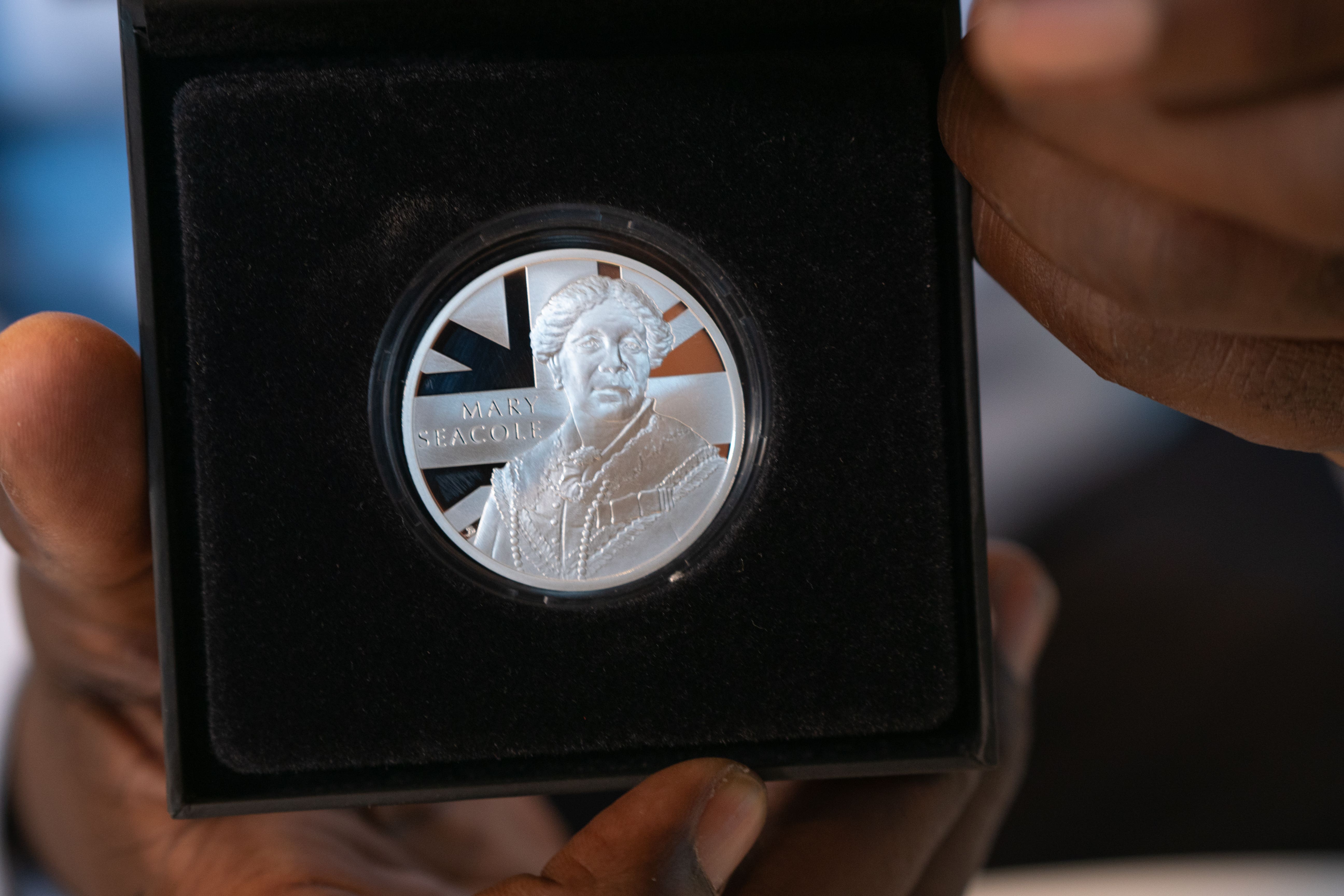New Royal Mint coin honours first non-British Black nurse who cared for UK soldiers in Crimean War
Mary Seacole risked her life to care for wounded British soldiers in Crimean War

Your support helps us to tell the story
From reproductive rights to climate change to Big Tech, The Independent is on the ground when the story is developing. Whether it's investigating the financials of Elon Musk's pro-Trump PAC or producing our latest documentary, 'The A Word', which shines a light on the American women fighting for reproductive rights, we know how important it is to parse out the facts from the messaging.
At such a critical moment in US history, we need reporters on the ground. Your donation allows us to keep sending journalists to speak to both sides of the story.
The Independent is trusted by Americans across the entire political spectrum. And unlike many other quality news outlets, we choose not to lock Americans out of our reporting and analysis with paywalls. We believe quality journalism should be available to everyone, paid for by those who can afford it.
Your support makes all the difference.A new Royal Mint coin in honour of a 19th-century Jamaican nurse who cared for British soldiers is the first to feature a named black woman from outside the UK.
Mary Seacole, who had a Scottish father, overcame racism in her home country to nurse soldiers wounded during the Crimean War in the 19th century.
Her commemorative coin, released on Monday, comes seven years after a 12-year campaign which raised £500,000 to honour her with a statue at St Thomas’ Hospital London – the first statue of a named, black female in the UK.
Sculptor Martin Jennings, who designed the statue, also drew up the design for the coin’s reverse, which features King Charles.
The £5 coin, which is not for legal tender, has been produced to “commemorate and celebrate” the women of Britain, a spokeswoman for the Mary Seacole Trust said.
This is a very proud moment
Trevor Sterling, chair of Mary Seacole Trust, said: “This is another significant historical moment and it pays tribute to Mary Seacole as a symbol of the NHS, diversity, social justice and also in understanding the diverse contributions that have been made to this country.
“This is a very proud moment, and I’m looking forward to travelling to Jamaica to honour Mary Seacole Day to present the coin to the new Jamaican high commissioner and gift a coin to the Institute of Jamaica.
“It’s our way of saying thank you, we know that you suffered a loss as a result, and we acknowledge what’s been given to us.”
Mary Seacole was born in Jamaica in 1805 to a Scottish soldier and a Jamaican woman.
She considered herself to be a Creole and faced civil rights limitations, including not being allowed to vote, hold public office or pursue a professional career.
In 1854, she travelled to England and requested to serve as an Army nurse in the Crimea, but her request was denied.
Undeterred, she went to the Crimea anyway and established the British Hotel near Balaclava, offering comfortable accommodation for sick and recovering officers.
The nurse also risked gunfire on the front line to help gravely wounded soldiers, earning herself the nickname “Mother Seacole”.
The coin is available in gold Proof, silver Proof, and silver Proof Piedfort.
Subscribe to Independent Premium to bookmark this article
Want to bookmark your favourite articles and stories to read or reference later? Start your Independent Premium subscription today.



